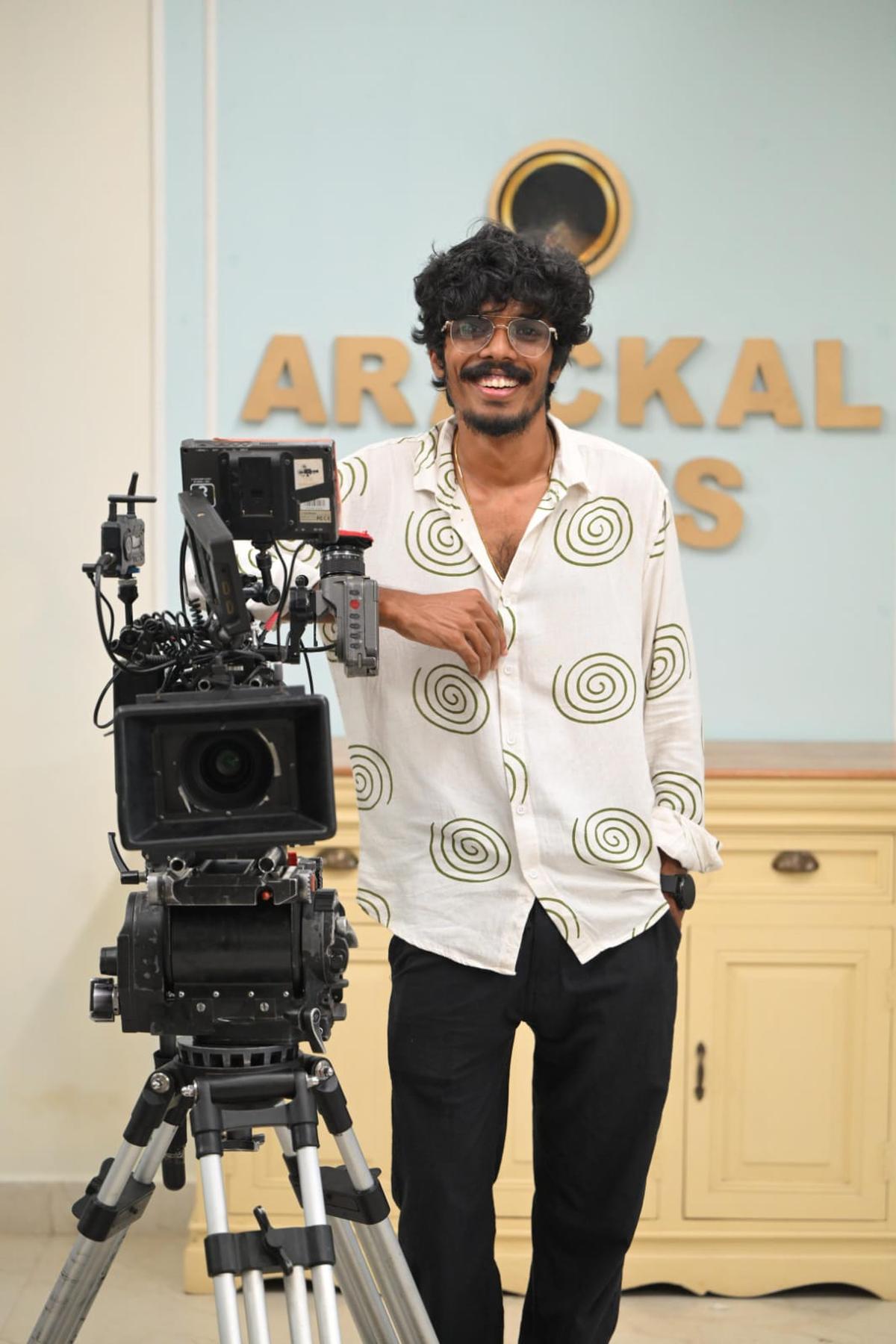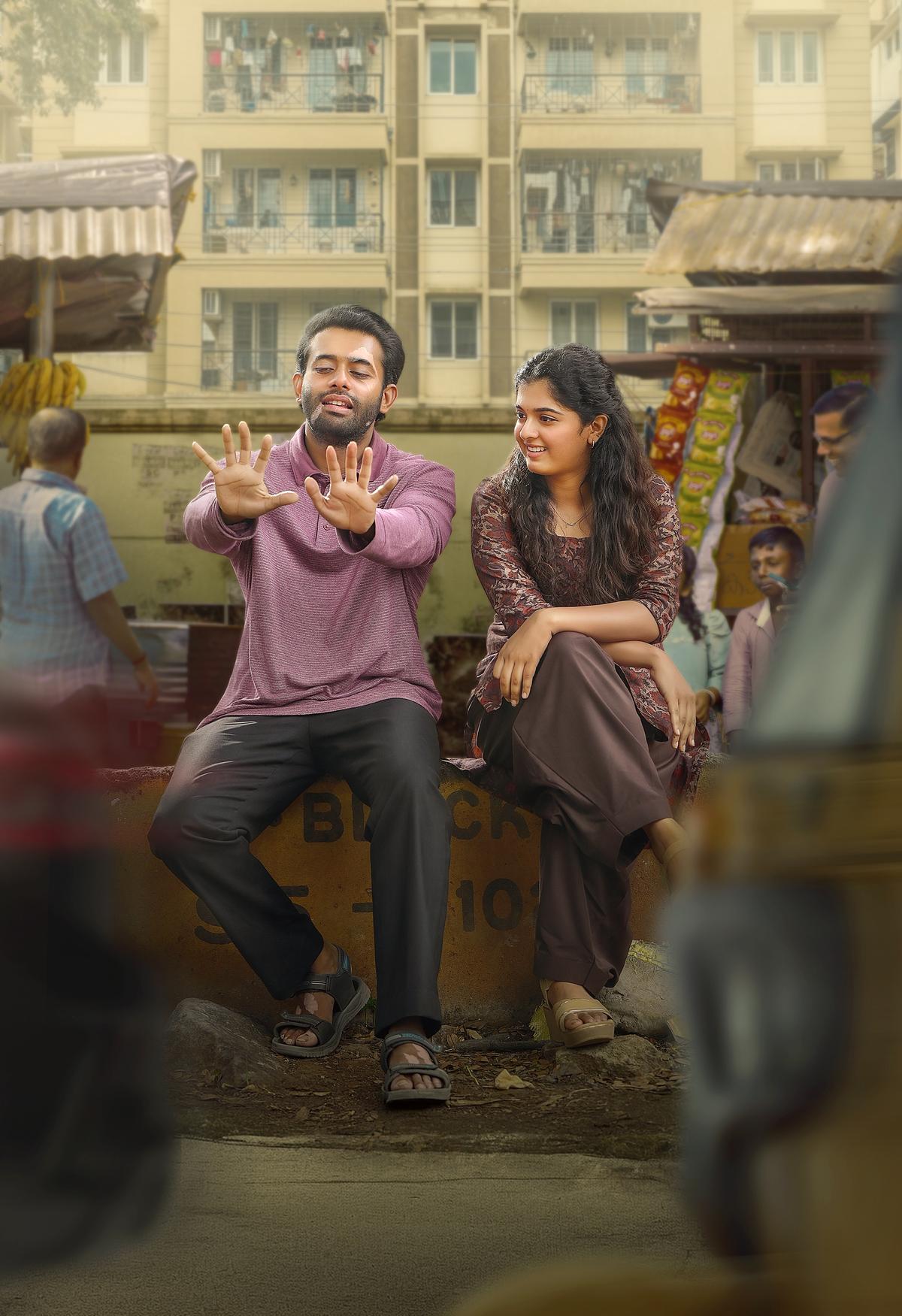Akhil Anilkumar, the writer-director of Thalavara, is faced with a stumper. While he is happy about the positive reviews coming the film’s way, the lukewarm theatre response has left him confused. “The reviews are good, I am happy as a writer/director. But I am slightly sad. Where is the problem? Possibly because it is the exam season? Or people are waiting for the other Onam films?” Akhil sounds genuinely confused.
Director and editor Mahesh Narayanan, the producer of the film with Shebin Backer, even put out an Instagram post requesting people to watch the film in theatres rather than wait for the OTT release or on television.
It is not so much about his film being a hit or raking in the moolah. “It is more about my commitment to Shebin Backer, the producer who placed his trust in me and stood by me like a rock these past four years that it took to get the film to the screen. I don’t wish for the film to rake in crores, just return on investment so that Shebinikka does not suffer a loss!” says Akhil, 29. The team is sparing no effort to go all out and promote the film.

One tells him that the Onam releases might cause audience spillovers, of people who might walk in for the film, but both of us know it is cold comfort. With the biggies due for release this week, including a Mohanlal, Fahadh Faasil and Naslen release each, the number of centres [theatres screening the film] would come down considerably. That this is the kind of film that is likely to do well after its OTT release is also not a consolation. This points to a larger issue which ails the film industry in general about audiences waiting for a film’s OTT drop.
Thalavara is a sensitively told story about a man with vitiligo, Jyothish, essayed brilliantly by Arjun Ashokan, who refuses to be defined by the condition. The tautly woven narrative has some unforgettable, well-etched characters brought to life by a crew of actors that Malayalam cinema should be proud of. Devadarshini (Asha) is not a Keralite and Revathy Sarma (Sandhya) is a Chennai-settled Malayali from Kollam.

Akhil Anilkumar
| Photo Credit:
SPECIAL ARRANGEMENT
People affected by vitiligo have come out in support of the film, the most common response to Thalavara has been about how they felt seen and the representation resonated.
The initial thread was a story pegged on body shaming. “That was the idea I pitched to Shebinikka. It was about how this person was the constant butt of jokes because of the way he looked. However, when we went about looking for someone with that kind of an appearance we could not find anybody,” says Akhil.
A chance encounter with vitiligo
That is when, during a train journey, he came across a young boy with vitiligo. Akhil remembers being struck and impressed by the child’s confidence. “He was not bogged down by it and his mother was the same. I am uncomfortable with my body image, that chance encounter was an eye-opener for me and a motivation for me.” And he was back on track, Shebin also agreed. When he set about looking for more about vitiligo in films, much to his excitement he learnt that there were few films about it. BBC was a source of information.
“Of course, there are people affected by vitiligo in films, but not as the protagonist, I don’t think so. That gave me a high. Once I started working on it, suddenly I began serendipitously meeting people with the condition. Some were forthcoming, most were not. They probably thought it [the film] would mock them.”
Thalavara is Akhil’s third film, he made his debut with Archana 31 Not Out and a segment in the Freedom Fight anthology. Thalavara has been handled with maturity, it is not excessively emotional as a film like this can get.
Does he feel, with this film, that he has matured — as a writer and a director?
“As a director, I don’t think I have changed that much because that has not been called to question. However, as a writer, yes, I would say I am better. With my other two films, the criticism was more about the writing, not so much questioning me as a director.” He worked on his writing, telling co-writer Appu Aslam that people should “speak about the writing” positively.
He reveals that he had written 10 drafts of the script by the time Appu came on board, and together they wrote a stupendous 49 drafts. “They are still saved on my computer!” Of getting Appu to collaborate, he says that he began “losing the film” unable to, in his opinion, elevate it. There was no sounding board to bounce off ideas, it was creatively lonely.

Arjun Ashokan and Revathy Sarma in the film
| Photo Credit:
SPECIAL ARRANGEMENT
Appu and he would narrate the script to their “consultants” or friends, get the feedback and tweak the story. “At times, on set, all that writing went out the window when we had to improvise/write a scene on the spot,” Akhil reminisces.
Making Thalavara tick is also its casting, especially Asha and Kannappan, essayed by Tamil actor Devadarshini and veteran actor Ashokan. Rather than the oft seen family dynamics in current movies, where either the family is entirely absent or it is the same — stay at home mother and working father — they wanted something different.
“We flipped it. So we have the father asking the mother for money, as she leaves for work, to watch a film. At the same time, we were conscious that people shouldn’t dislike him for it. We gave him the back story of a cinema crazy man who has lost everything, including his confidence, for films. One of the best people to carry that off was Ashokan chettan.”
Carefully picked actors
Finding Asha was as much of a challenge as finding Sandhya (Revathy Sarma). “I am fan of Devadarshini, especially in Muni 2: Kanchana. That was her peak performance, according to me. It still is her best. We wanted someone who was energetic and sprightly, the kind Ashamma is and Devadarshini fit the bill,” says Akhil.
Sandhya’s character was another, even after 300 auditions, they could not find the one. “The actor had to be a Tamilian, what happened there was that they could not understand Malayalam and as a result they could not respond.” A friend suggested Revathy Sarma, a Chennai-based Malayali.
Palakkad is as much a character in the film, it is possibly one of the rare films which shows a new facet of the town. “Palakkad is my hometown and I wanted to showcase a different side of it rather than the rural side of it. It is a bustling town with a strong cinema culture. Even before re-releases became a thing, we were already doing it there.” The culture of the place was familiar, and every job Jyothish, Arjun Ashokan’s character has done, Akhil has. He has worked as a salesperson, in a supermarket, and made short films too.
Was Jyothish written with Arjun Ashokan in mind?
“No. I don’t do that because, if, for some reason, the actor I have in mind may not be able to come on board it would be disappointing for me. I would rather give the actor the role than write something with an actor in mind.”





